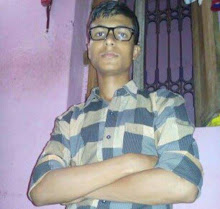It is shocking but not surprising: for the last few years, smog over large swathes of north India herald the winter.

Everybody knows it will happen. We know that come November, the air quality index will shoot through the charts. And the failure to prevent this massive public health emergency, year after year, is a perfect example of everything that is wrong with India.
We the people don’t care
Public discourse of air pollution, from WhatsApp groups to the streets, is about which mask to buy, which air purifier works best, which indoor plants to get, and whether eating jaggery gives immunity against particulate matter (PM) 2.5.
There’s a strange lack of outrage over government inaction. We’ve seen the studies and the data. The smog over our skies reduces our lifespans. PM 2.5 enters our lungs and our bloodstreams. Headlines have screamed, for three years now, that doctors are telling patients to leave Delhi if they can. A World Health Organisation report has claimed 2.5 million Indians died of pollution in 2015 alone—the largest number of pollution deaths in the world. Breathing the Delhi air these days is said to be like smoking 45 cigarettes a day.
These warnings perhaps don’t move us because, like climate change, we think the price we’ll pay with our health will be in the distant future. But when the smog peaks so much that people start seeing the smoky air inside their houses, when cars start ramming into each other on the highways and killing people, you’d think there’d be widespread public anger. As Delhi rose up in anger against rape in December 2012 or against corruption in August 2011, you’d think citizens would be angry with the government.
But beyond share pictures of low visibility and cracking jokes on social media, the people are not demanding action.
It’s symptomatic of India: we don’t see clean air as a right, our expectations of our government are generally low, and we have long made peace with the idea that we are a mess of a country.The elites close themselves with expensive air purifiers and imported masks. Their hold over public discourse means, for instance, that people don’t demand better transport that would reduce vehicular pollution.
The government doesn’t care
We get the government we deserve. To use another cliché, there’s lack of political will. The authorities know exactly what they need to reduce air pollution, but the implementation in India begins after the disaster has struck.
Headlines even in the international press have been telling for years that India has the worst air quality in the world. The planet’s most polluted cities are concentrated in this country. You’d think prime minister Narendra Modi would at least want to be seen as doing something about this, if not actually doing something. He hasn’t said a word.




No comments:
Post a Comment